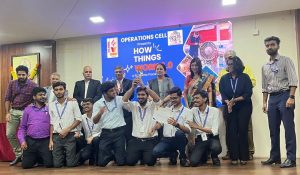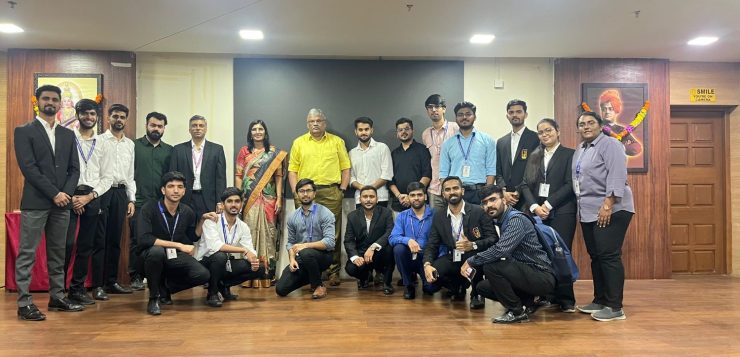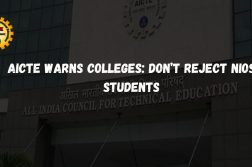In a world where management education constantly evolves to stay aligned with industry demands, experiential learning has emerged as a vital pedagogical tool. To reinforce this, VESIM recently organized an innovative activity titled “How Things Work – A Peek into Processes” for First Year MMS students. The event aimed to provide hands-on exposure to complex production and service operations, helping students bridge the gap between textbook knowledge and real-world applications.
Building Conceptual and Practical Foundations
 The activity was designed with a multi-dimensional objective. At its core, it intended to help students understand key Operations Management concepts like types of processes, process flow, bottlenecks, cycle time, throughput time, and process improvements.
The activity was designed with a multi-dimensional objective. At its core, it intended to help students understand key Operations Management concepts like types of processes, process flow, bottlenecks, cycle time, throughput time, and process improvements.
More than just learning terminology, students were tasked with observing live operational environments to see how inputs are effectively converted into outputs.Beyond technical skills, the event placed a strong emphasis on managerial competencies.
Students developed critical soft skills including teamwork, coordination, communication, presentation, and interpersonal effectiveness—essential traits for any aspiring business leader.
Structured Learning with Purpose
Spanning over five to six weeks, the event was carefully structured to balance learning, exploration, and execution. Students self-formed teams and selected a company or outlet of their choice. Over the next three to four weeks, they visited these setups, recorded key process observations, and created insightful videos with clear narration and conceptual explanation.
These videos were submitted to the Operations Cell and screened based on predefined evaluation and elimination criteria. The best entries were shortlisted for the Grand Finale, where the real magic unfolded.
A Platform to Present, Defend, and Reflect
During the finale, selected teams presented their videos to a panel comprising faculty members and industry experts. Following each screening, teams faced a robust Question-and-Answer round where their understanding, analysis, and insights were critically evaluated.
This interaction served as a two-way learning experience: students reflected on their understanding and applied knowledge, while the experts provided valuable feedback, deepening the students’ learning curve.
The event thus simulated a professional environment that demanded analytical thinking, spontaneous responses, and confident articulation.
Learning Outcomes That Matter
The experience is more than an assignment—it’s a stepping stone. Here’s what students take away:
- Enhanced understanding of process-driven concepts through real-world observation
- Improved teamwork and project management skills through collaborative assignments
- Effective communication and presentation abilities developed through peer and expert engagement
- Greater confidence in analyzing and interpreting operational challenges
Why It Matters
“How Things Work” is just one example of how experiential learning at VESIM prepares students to become future-ready managers. By combining hands-on experience with academic learning, we make sure our students don’t just understand business—they live it.
So when you join VESIM, you’re not just signing up for an MBA—you’re stepping into a journey where every theory you learn finds its way into real-world application. That’s the VESIM way.




